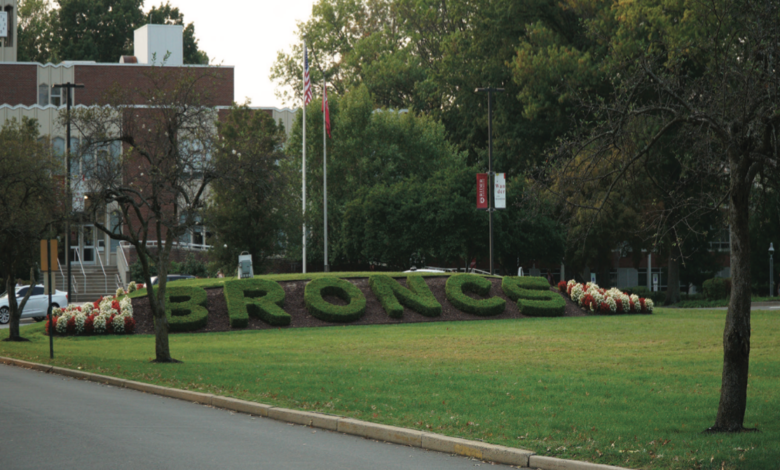
Dell’Omo announcment draws student concern
By Kaitlyn McCormick
Rider President. Gregory Dell’Omo started the semester on Jan. 24 with a warm welcome: announcing a voluntary separation program to students and employees via email. The program was enacted in hopes of cutting down payroll and benefit expenses to help supplement an estimated $20 million cash deficit faced by the university this fiscal year.
This new program comes alongside concerns from students, staff and faculty, as the future of the university under the Dell’Omo administration is called yet again into question and, more importantly, how much work is being put into keeping students up-to-date with administrative proceedings which will affect them in the long run.
Students respond
Of the timing of the message, senior psychology major Maureen Guilbot said, “It just doesn’t create a very welcoming environment to new students who are coming on to campus.”
Guilbot, who is considering staying at Rider for her graduate degree, described the announcement as “nerve-wracking,” not only due to the timing, but due to the very real implications that a deficit so large will have on the university as a whole, as the administration continues to find ways to make up for it.
If students are concerned about the program, one can only begin to imagine the worries of not only eligible staff but all of Rider faculty who may fear the greater potential impacts on their departments if the program is not successful.
Discrepencies in correspondence
The voluntary separation program FAQ section of the Rider website reads, “Unless the voluntary separation program is sufficient to meet the university’s financial goals, involuntary separations will follow.”
A separate email was sent to Rider faculty and staff including this information about potential involuntary separation, as well as specifically addressing the $20 million amount of the cash deficit the university is looking to close – information that, while available on the university website, was withheld from the mass communication sent out to students.
Senior sociology major Nida Bajwa said of the email, “It was very wordy, and sometimes it feels like they dance around saying certain things.”
Guilbot said, “I actually read the email three times because I wasn’t sure about what I was reading. … I was like, ‘wait a minute, is that really what’s happening?’”
One statement included in Dell’Omo’s email to students, however, is that “The voluntary separation program, coupled with the academic and administrative prioritization processes currently underway, will address critical immediate needs so in the long-term Rider can continue to invest and grow.” Meanwhile, the role that employees at Rider play in keeping the university running efficiently, and more so the changes that will occur in their absence, is still a concern.
While department chairs are assessing their staff and operations, one question remains: will the voluntary separation and most-likely involuntary separation of non-AAUP [Academic Association of University Professors] staff to follow be at the detriment to not only the employees left to bear the workload but the students paying for a Rider education?
Assessing the cash deficit causes
If the voluntary separation program is the necessary financial move to alleviate Rider’s massive deficit, then the criticism stays in questioning how the university made it to this point in the first place.
Higher education in general during the pandemic has faced a lot of challenges, especially in the financial department with students unenrolling or choosing not to pay for on-campus housing, but the pandemic cannot be fully to blame for the monetary stress now causing the university to cut down its staff expenses.
While the COVID-19 era has undoubtedly exacerbated underlying financial issues faced by the university, they still existed in the first place and have had a continued presence under the Dell’Omo administration, for example the ongoing issues with selling the Westminster Choir College Princeton campus and the involved legal fees.
Calling for student vigilence and involvement
Introducing this program has not only posed a concern for the eligible staff it directly affects and the AAUP faculty members who may be fearing the implications of the program not meeting the needs of the deficit but also students who, as mentioned before, are not always kept tightly in the loop with administrative happenings.
Guilbot said, “I feel like decisions are made, and then we find out about them when the decision has been made.”
While it is understandable that students may not be fully informed or involved in every higher-level conversation and decision, this program, as well as many other issues happening under the administration right now, like the ongoing prioritization process, often fly under the radar of the larger student body.
It is fundamental to remember that Rider students are still adults who are paying tuition to receive a Rider education. They should be kept more clearly aware of the decisions that will trickle down from an administrative level with the potential to impact not only their educational environment but also the value of their degree in the future.
Bajwa said, “I’m getting a degree from here, and I’m hoping that my institution stays alive and well many years after I leave, but I don’t know. It is scary.”
In the same way that the university has a responsibility to be more forthcoming with information that will affect students, students have a responsibility to themselves to pay attention to what is happening on an administrative level. In the instance of this voluntary separation program especially, shifts in the working environment for faculty and staff will on one level or another impact the quality of education that students will receive.



